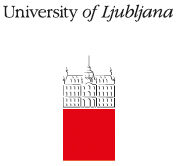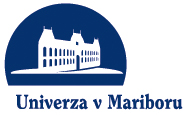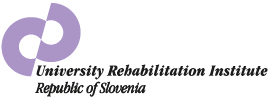|

|
The Laser and Health Academy
promotes medical, technological and other research activities with the aim to advance the field of medical lasers and their applications. As a non–profit organization, the Academy is responsible for the development of laser medicine based on empirical findings in professional circles and for transferring knowledge to the general public.
|
 |
The Laboratory of Biocybernetics in the Faculty of Electrical Engineering at the University of Ljubljana
focuses on research involving the impact of electromagnetic fields on the physiological condition of cells, tissues and entire organisms. In recent years the Laboratory's research has mainly been focused on the electroporation phenomenon and its application in biology, biotechnology and medicine.
The Laboratory of Imaging Technologies in the Faculty of Electrical Engineering at the University of Ljubljana
researches and develops procedures for the analysis of medical imaging, helping to set diagnoses and to plan, implement and monitor treatment effects. The Laboratory is also active in the development of high–tech systems for visual quality control of raw materials and products in highly demanding industrial processes.
The Laboratory for Optodynamic and Laser Engineering in the Faculty of Mechanical Engineering at the University of Ljubljana
has been committed to the research and development of laser technology applications since 1980. Many of the Laboratory’s discoveries have found commercial applications, a fact which has helped to strengthen cooperation with other medical institutions in the development of new diagnostic and therapeutic interventions.
The Laboratory for Digital Systems and Electrical Engineering in the Faculty of Mechanical Engineering at the University of Ljubljana
The core expertise of Laboratory for digital systems and electrical engineering are embedded microprocessor control systems, opto–mechatronic systems and control of laser systems.
|
 |
The Electro-Optical and Sensory Systems Laboratory in the Faculty of Electrical Engineering and Computer Science at the University of Maribor
conducts research in the field of optical fiber sensors, optical fiber design, industrial sensors, photonics devices and components, acoustic sensors and other solutions for measurement and instrumentation.
The System Software Laboratory in the Faculty of Electrical Engineering and Computer Science at the University of Maribor
has a world-leading position in the research of bioelectric signal decomposition. At the professional, applied level the Laboratory’s members are actively involved with software development (particularly system software) and embedded microcontroller systems in the field of signal processing.
|
 |
The University Medical Center Ljubljana,
with 7,500 employees, is the largest medical institution in Slovenia and the leading facility of Slovenian medicine. In addition to providing services of secondary and tertiary health care, it also facilitates knowledge transfer and the continuous implementation of new diagnostic and treatment methods.
|
 |
Gorenje, d.d.
is one of the leading European manufacturers of home appliances with a more-than-60-year tradition. It exports more than ninety percent of its production of technologically superior, superbly designed and energy-efficient household appliances to seventy countries around the globe. In addition to appliances, the company also offers a comprehensive range of related home products.
|
 |
Fotona d.d.
has been working in the field of laser technology since 1964. The company is actively focused on the development of medical-laser devices for dentistry, aesthetics & dermatology, and surgery. Innovations such as the Lightwalker® dental laser have ranked Fotona among the leading market players in medical-laser technology worldwide.
|
 |
Iskra Medical, d.o.o.
was founded in 1991 and operates in the field of aesthetic medicine and cosmetology. It is an innovative and internationally renowned company that focuses on non-invasive body shaping and rejuvenation.
|
 |
Instrumentation Technologies, d.d.
is a world leader in the design, development and supply of instrumentation for particle accelerators. Users have described the company's instruments as a fundamental part of the accelerator equipment and a technology that is helping to shift the boundaries of the impossible.
|
 |
Optotek d.o.o.
works in the field of laser technology in ophthalmology. It specializes in the development and production of laser devices for capsulotomy and open–angle glaucoma therapy. Every tenth such device worldwide has been made by Optotek.
|
 |
The Department of Experimental Oncology at the Institute of Oncology Ljubljana
is actively involved in translational research, developing new treatment approaches in the fields of chemotherapy, radiotherapy and gene therapy, primarily on the basis of electroporation.
|
 |
The University Rehabilitation Institute, Republic of Slovenia
is the main Slovenian comprehensive rehabilitation institute, aiming to improve the quality of life of patients and rehabilitants and facilitate their return to an appropriate living environment. The Institute’s research and education are helping to develop and update the overall rehabilitation doctrine.
|
 |
The Low and Medium Energy Physics Department at the Jožef Stefan Institute (JSI)
is focused on experimental physics involving the electronic structure of molecules and atoms, as well as the physics of subatomic particles and high-energy photons. The Institute’s applied research has been directed towards the development of new analytical methods and instrumentation in the field of medical physics.
The Complex Matter Department (F7) at the Jožef Stefan Institute (JSI)
is active in areas concerning the synthesis of novel nanomaterials and in the research of dynamic phenomena and self-organization in complex systems. Biological systems have been analyzed with optical spectroscopy, radiometry and magnetometry methods and with the development of theoretical models.
|